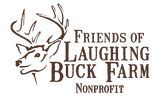Why Therapeutic Riding?Physical Benefits
The horse's movement provides the sensory input of a precise, repetitive pattern of movement very similar to the movement of a person's pelvis during normal human gait. The 3-D movement of the horse's back simulates the human gait. The horse's center of gravity shifts forward/backward, up and down and side to side just as the human's does. Rotation results as a combination of the three movements. During one complete movement cycle of the horse (4 steps), the rider's shoulders and pelvis perform a circular movement. Due to the horse's movements, the following may be accomplished: Mobilization of pelvis, lumbar spine and hip joints Normalization of muscle tone through the horse's movement and body warmth Development of head and trunk postural control Improves symmetry The horse provides strong graded tactile, proprioceptive and vestibular input which can be used to improve sensorimotor integration. Facilitates development of righting and equilibrium reactions Improves body awareness Improves spatial orientation Improves endurance Facilitates breathing Positive effect on circulation Positive effect on digestive system Psychosocial Benefits Improves self-esteem Improves confidence Improves concentration and attention span Improves motivation Contact with the horse demands constantly changing adaptive responses and resulting automatic self-correction. Result is increased responsiveness and adaptability. Feelings of euphoria following physical stress. Direct results of stimulation to the nervous system. Effect of human-animal bonding Improves dyadic and group interaction WHAT IS PSYCHOSOCIAL? For a concept to be psychosocial means it relates to one's psychological development in, and interaction with, a social environment. The individual needs not be fully aware of this relationship with his or her environment. It was first commonly used by psychologist Erik Erikson in his stages of social development. Contrasted with social psychology, which attempts to explain social patterns within the individual. It is usually used in the context of "psychosocial intervention," which is commonly used alongside psycho-educational or psycho-pharmacological interventions and points toward solutions for individual challenges in interacting with an element of the social environment. Problems that occur in one's psychosocial functioning can be referred to as "psychosocial dysfunction" or "psychosocial morbidity." This refers to the lack of development or atrophy of the psychosocial self, often occurring alongside other dysfunctions that may be physical, emotional, or cognitive in nature. Definition taken from Wikipedia WHAT ARE THE PSYCHOSOCIAL BENEFITS OF THERAPEUTIC RIDING? Improves self-esteem Improves confidence Improves concentration and attention span Improves motivation - rider must perceive the therapy as fun. Methods should be selected that the rider likes best. This lifts the spirits as soon as the body is set in motion. Contact with the horse demands constantly changing adaptive responses and resulting automatic self-correction. Result is increased responsiveness and adaptability. Feeling of euphoria following physical stress. Direct results of stimulation to the nervous system. Effect of human-animal bonding Improves one-on-one and group interaction.
0 Comments
|
